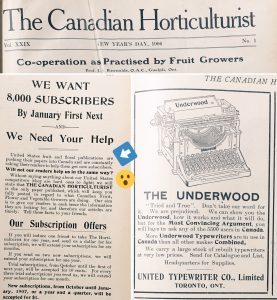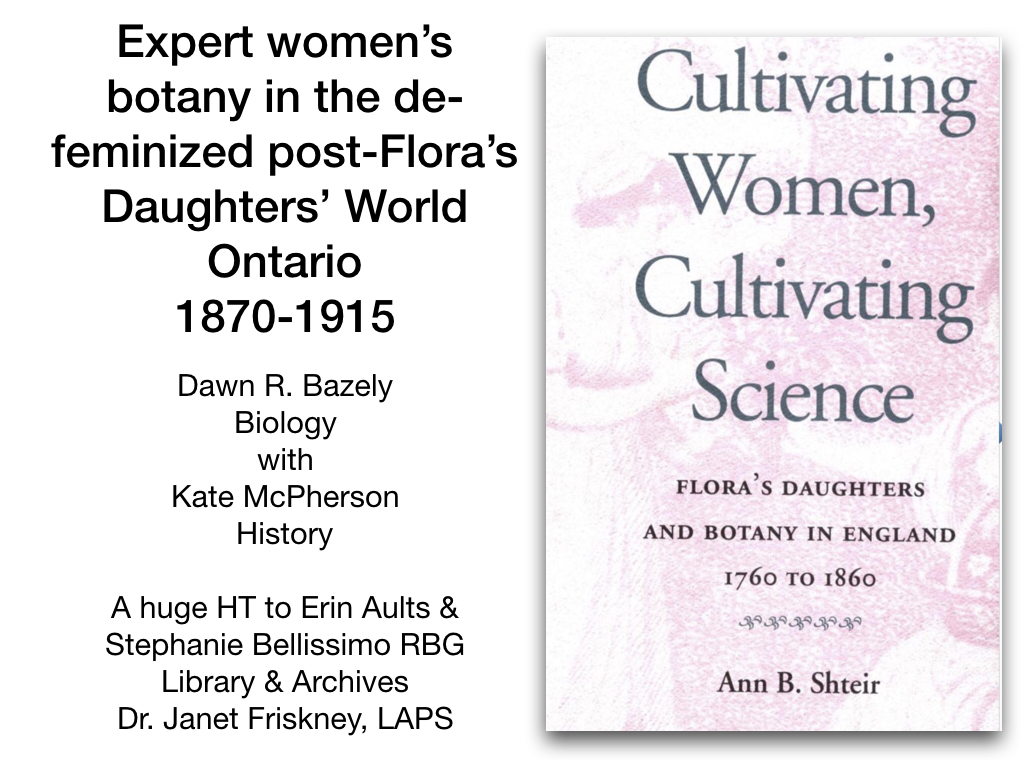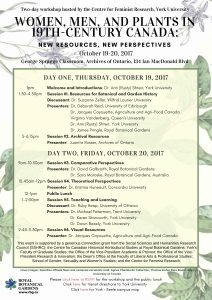 Investigator-driven research is often highly serendipitous. In high school, I liked history as much as biology, but I'm a fidget, and biology, which is much more action-oriented, allowed me to move more. Also, references were much easier to type for science lab reports and essays, than those fussy footnotes required in history and philosophy.
Investigator-driven research is often highly serendipitous. In high school, I liked history as much as biology, but I'm a fidget, and biology, which is much more action-oriented, allowed me to move more. Also, references were much easier to type for science lab reports and essays, than those fussy footnotes required in history and philosophy.
Nearly 40 years since I last wrote a paper that involved footnotes, I'm writing a chapter for a book about botany in Canada during the 19th century, and it will have endnotes (which are footnotes stuck at the end of a chapter, instead of at the bottom of a page). The great news is that software now makes all those footnotes and endnotes much easier to type and format.
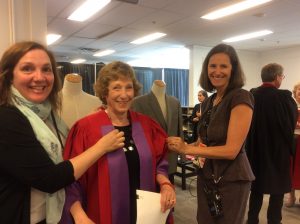
Rusty Shteir getting ready to receive an honorary degree in 2016, assisted by Irene Fezza and Ijade Maxwell of the president's office.
Learning to write and edit Wikipedia pages for Ada Lovelace Day, had recently given me a reason to delve into the history of women in STEM. So, when York historian, and top feminist scholar, Professor Emeritus Ann (Rusty) B. Shteir, invited me to participate in her workshop, Women, Men, and Plants in 19th-Century Canada: New Resources, New Perspectives, and write about women botanists, citizen science and disruptive technologies, naturally, I said, "yes".
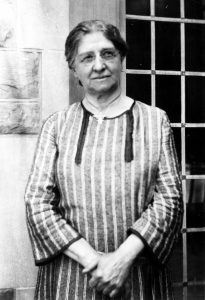 Supervised by my co-author, York history professor Kate McPherson, and a positive phalanx of librarians and archivists, I did research at the Royal Botanical Gardens library, into how women were participating in botany and horticulture from 1870 to 1915. In 1912, botanist and geneticist, Carrie Derick (right), was the first woman to become a university professor in Canada, at McGill University. But before this happened, I discovered how women were earning an income as authors, illustrators and in gardening businesses.
Supervised by my co-author, York history professor Kate McPherson, and a positive phalanx of librarians and archivists, I did research at the Royal Botanical Gardens library, into how women were participating in botany and horticulture from 1870 to 1915. In 1912, botanist and geneticist, Carrie Derick (right), was the first woman to become a university professor in Canada, at McGill University. But before this happened, I discovered how women were earning an income as authors, illustrators and in gardening businesses.
I presented my research in October, and was very gratified to be told that I had achieved a research level somewhere beyond a fourth year history student, in the region of work by a master's student. #Winning! I've loved learning how to work in archives. I probably won't switch my research to become a historian of botany, and do another doctorate, but I have added another method to my research toolbox. So, that's my post for today. Meanwhile, tomorrow, it's back to another chapter re-write, and sorting out those evil endnotes.
p.s. The meeting was funded by SSHRC, the Royal Botanical Gardens, and York University

